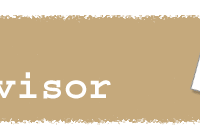A Friend's Dependency
Responding to Someone with Alcohol Problems
It is a touchy subject when you
approach a friend about their drug
or alcohol use. There is a certain way
that you can go about talking to them that will make it easier
for both of you to come to an understanding.
General Principles
The following is a list of some of the things to keep in mind.
* Ignoring the self defeating behavior of your friend, is not
helpful to the person for whom you are concerned.
* Helpful intervention is a process, not an event. It will take
awhile for your friend to get on the right track. Just telling
them that you think they have a problem will not solve it.
* When people are confronted about behavior which is part of their
lifestyle, they generally become defensive and angry.
* The more you learn about alcohol and its effects the more helpful
you can be to those who are having problems with it, by being
able to tell them why what they are doing is harmful.
When approaching your friend, attempt to...
* Let the person know you care about him/her (use "I"
statements, I am worried about you).
* Try to remain calm.
* Stick to observable facts - things that you see about the person
that tells you they are having trouble (confrontation is like
holding a mirror up to a person).
* Remain non-judgmental. Emphasize the contrast between the person's
sober behavior, which you like, and the drinking/drug behavior
that concerns you.
* Use gentle persistence. Stick at it, but don't get forceful.
* Anticipate what their possible responses might be (for example
they may minimize their problem, change topics, make excuses,
or promise behavior changes).
* Accept their anger, learn to side step it.
* Be ready to provide some education (printed materials etc.).
* Utilize your own support system.
* Involve others who are also concerned about the person.
You should try to avoid...
* Arguing with the person.
* Getting angry and losing control.
* Letting him/her change the topic.
* Getting hooked by their defensiveness (don't feel guilty and
don't take it personally).
* Delaying the confrontation, should be as soon as possible after
the event and after the person is sober.
* Diagnosing (ie. "you're an alcoholic").
* Sparing the person the consequences of his/her drinking
Related Links
Alcohol
Drugs
Dependency
Problem
Get Help
Warning Signs
Alcoholic Parents
|







